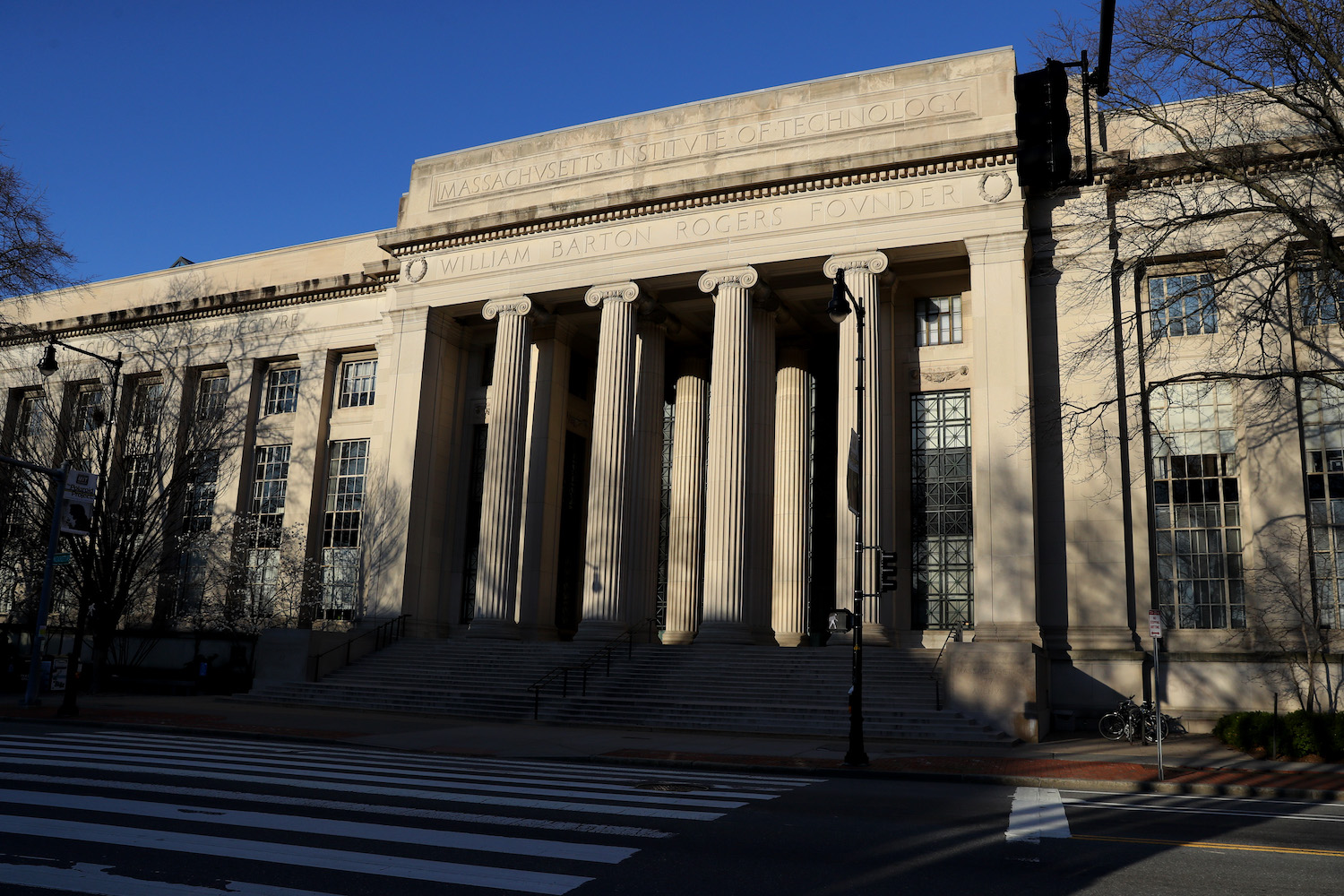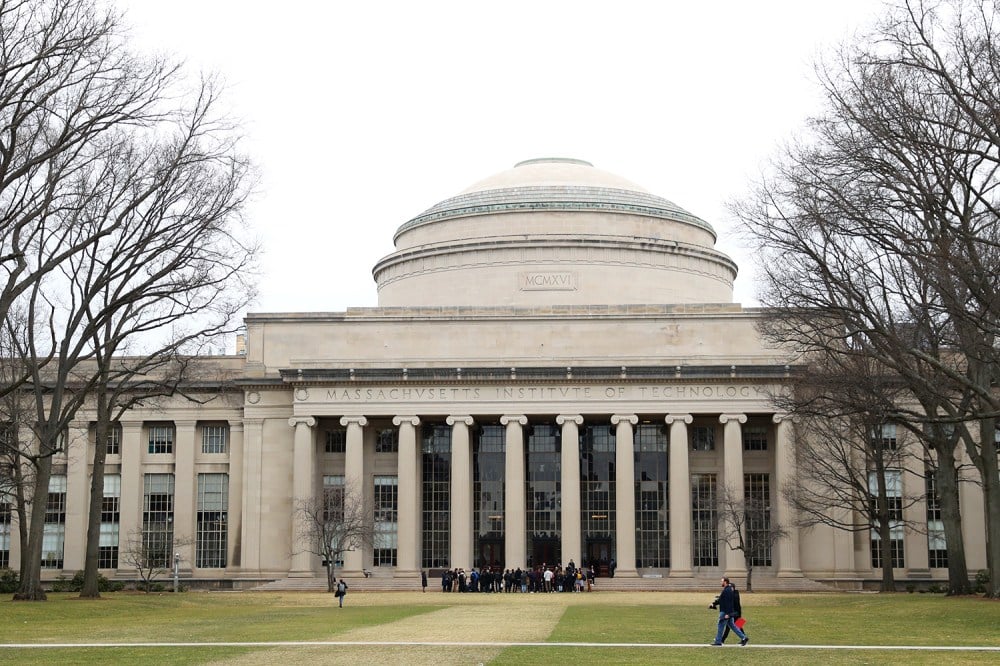beijingwalker
ELITE MEMBER

- Joined
- Nov 4, 2011
- Messages
- 65,191
- Reaction score
- -55
- Country
- Location
Chinese Scientists Are Leaving the United States
Here’s why that spells bad news for Washington.
By Christina Lu and Anusha Rathi
A view of Building 7 on the campus of Massachusetts Institute of Technology in Cambridge, Massachusetts, on March 31, 2020. PHOTO BY MADDIE MEYER/GETTY IMAGES
JULY 13, 2023, 5:58 PM
Facing an increasingly suspicious research climate, a growing number of Chinese scientists are leaving the United States for positions abroad, the latest indicator of how worsening U.S.-China relations are complicating academic collaboration and could hamstring Washington’s tech ambitions.
Chinese scientists living in the United States have for decades contributed to research efforts driving developments in advanced technology and science. But a growing number of them may now be looking elsewhere for work, as deteriorating geopolitical relations fuel extra scrutiny of Chinese researchers and Beijing ramps up efforts to recruit and retain talent. Between 2010 and 2021, the number of Chinese scientists leaving the United States has steadily increased, according to new research published last month. If the trend continues, experts warn that the brain drain could deal a major blow to U.S. research efforts in the long run.
“It’s absolutely devastating,” said David Bier, the associate director of immigration studies at the Cato Institute. “So many of the researchers that the United States depends on in [the] advanced technology field are from China, or are foreign students, and this phenomenon is certainly going to negatively impact U.S. firms and U.S. research going forward.”
From semiconductor chips to artificial intelligence, technology has been at the forefront of U.S.-China competition, with both Washington and Beijing maneuvering to strangle each other’s sectors. Cooperation, even in key sectors like combating climate change, has been rare.
From 2010 to 2021, the number of scientists of Chinese descent who left the United States for another country has surged from 900 to 2,621, with scientists leaving at an expedited rate between 2018 and 2021, according to research published in the Proceedings of the National Academy of Sciences (PNAS). Nearly half of this group moved to China and Hong Kong in 2010, the study said, and a growing percentage of Chinese scientists have relocated to China over the years.
While this number represents a small fraction of the Chinese scientists in the United States, the uptick reflects researchers’ growing concerns and broader apprehension amid a tense geopolitical climate. After surveying 1,304 Chinese American researchers, the report found that 89 percent of respondents wanted to contribute to U.S. science and technology leadership. Yet 72 percent also reported feeling unsafe as researchers in the United States, while 61 percent had previously considered seeking opportunities outside of the country.
“Scientists of Chinese descent in the United States now face higher incentives to leave the United States and lower incentives to apply for federal grants,” the report said. There are “general feelings of fear and anxiety that lead them to consider leaving the United States and/or stop applying for federal grants.”
The incentives to leave are twofold. Beijing has funneled resources into research and development programs and has long attempted to recruit scientists, even its own, from around the world. For one of its initiatives, the Thousand Talents Plan, Beijing harnessed at least 600 recruitment stations worldwide to acquire new talent. “China has been really trying to lure back scientists for a long time,” said Eric Fish, the author of China’s Millennials.
But this latest outflow of Chinese scientists accelerated in 2018, the same year that then-U.S. President Donald Trump unveiled the China Initiative, a controversial program that was aimed at countering IP theft—and cast a chill over researchers of Chinese descent and collaborations with Chinese institutions. In 2020, he also issued a proclamation denying visas for graduate students and researchers affiliated with Chinese universities associated with the military.
Although the Biden administration shut down the China Initiative, experts warn that its shadow still looms over Chinese scientists. More than one-third of respondents in the PNAS survey reported feeling unwelcome in the United States, while nearly two-thirds expressed concerns about research collaboration with China.
“There is this chilling effect that we’re still witnessing now, where there is a stigma attached to collaboration with China,” said Jenny Lee, a professor at the Center for the Study of Higher Education at the University of Arizona.
The challenges are emblematic of how the breakdown in U.S.-China relations has thrown universities into a geopolitical firestorm, particularly as some states’ lawmakers pressure them to sever ties with Chinese counterparts. On the U.S. side, interest in Mandarin language studies and study abroad has plummeted over the years, largely the result of worsening ties, Beijing’s growing repression, and the coronavirus pandemic. Today, while there are roughly 300,000 Chinese students in America, only 350 Americans studied in China in the most recent academic year. If interest continues to recede, experts warn of spillover effects that could hamper Washington’s understanding of Beijing.
“We’re losing a generation of people who are knowledgeable about China,” said Daniel Murphy, the former director of the Fairbank Center for Chinese Studies at Harvard University. “I’m concerned that the United States is going about this issue in a way that excessively focuses on risks of the academic relationship, without due consideration for the benefits. And I think we see this in a whole host of arenas, and that it’s bipartisan.”
At the same time as a growing number of Chinese scientists exit the United States, new students appear to be facing higher barriers to entry as student visa denials and backlogs reach record high levels. According to a blog post by the Cato Institute, student visa denials peaked at about 35 percent in 2022—the highest rate recorded in two decades.
Student visa denial data is not available by nationality, but Bier, the Cato Institute expert who wrote the piece, said that there is a high degree of correlation between denial rates for B-visas, or tourist visas, and student visas. “Having reviewed the B-visa denials in China, it’s pretty clear that the Chinese overall visa denial rate has increased significantly over the last few years and is at a level now where it’s the highest it’s been in decades,” he said.
Just as some Chinese scientists are looking abroad, these challenges are pushing a growing number of international students to turn elsewhere for academic opportunities. Students are increasingly heading to countries like Canada, Australia, Japan, and the United Kingdom, all of which are opening their doors to high-skilled workers and researchers. To attract more talent, the United Kingdom has issued “Global Talent” and “High Potential Individual” visas, which allow scholars from top universities to work there for 2-3 years and 1-5 years, respectively.
Universities are being impacted “by geopolitical tensions, by political agendas, and so it’s certainly inhibiting U.S. universities’ ability to attract the best and brightest,” Lee said.

Chinese Scientists Are Leaving the United States
Here’s why that spells bad news for Washington.
